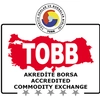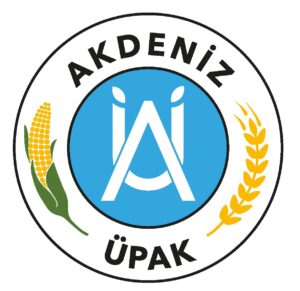ABOUT US
COMMODITY EXCHANGES
Commodity exchanges are public legal entities established within the framework of the principles written in the Law No. 5174 to deal with the purchase and sale of items included in the exchange and the determination, registration and announcement of the prices formed in the exchange. Exchanges related to foreign exchange and precious metals are outside the scope of this Law.
Establishment of the Commodity Exchange
- Exchanges are established by the Ministry upon the positive opinion of the Union of Chambers and Commodity Exchanges of Turkey in the provinces required by commercial needs.
- Special quality exchanges can also be established to operate at the country, regional and international level.
- Establishment of regional commodity exchanges; It takes place with the written application of more than half of the total number of members in the provinces of the region to the Union or the decision of the Ministry upon the decision of two-thirds of the total number of individual members of the commodity exchange assemblies and the positive opinion of the Union. With the establishment of the regional exchange, the founding exchanges turn into branches.
- Country and regional exchanges are also subject to the provisions regarding commodity exchanges.
- Commodity Exchanges are obliged to provide adequate and appropriate organization, infrastructure, equipment and necessary personnel for the service to be provided, in line with the common criteria based on the conditions of stock exchange to be determined by the regulation to be issued by the Ministry upon the positive opinion of the Union.
- Classification of commodity exchanges according to their qualifications shall be regulated by a regulation to be issued by the Ministry after receiving the positive opinion of the Union.
- Non-residents can trade on international commodity exchanges.
Working areas of commodity exchanges
The working area of the commodity exchange is the borders of the province where it is located. This working area can be expanded or narrowed by the Board of Directors of the Union, including the surrounding provinces and valid until another commodity exchange is established in those provinces.
Duties of Commodity Exchanges
- To arrange and register the buying and selling of the materials included in the commodity exchange
- To duly determine and announce the daily prices of the items included in the exchange, which are formed in the exchange.
- To make general regulations that will enter into force with the approval of the Union, showing the obligations of the buyer and the seller in terms of delivery, receipt and payment, the liquidation conditions of the transactions, the conditions effective on the prices, and the optional arbitration procedures when a dispute arises.
- To follow the domestic and foreign stock markets and markets, to communicate with prices, to guide its members in electronic trade and internet networks.
- To arrange and approve the documents in Article 51.
- To establish laboratories and technical offices or to participate in establishments in order to determine the types and characteristics of the substances included in the Exchange.
- To determine the customs, traditions and practices related to the stock exchange in their regions, to submit them to the approval of the Ministry and to announce them.
- To make proposals, wishes and applications to the relevant official authorities on matters pertaining to the activities of the Exchange; To file a lawsuit on behalf of these members or on his own behalf if all or some of its members have an interest.
- To monitor agreements, decisions and practices in the nature of concerted action that may have anti-competitive effects, and to notify relevant authorities if detected.
- To carry out these works in case the works given to the ministries or other public institutions and organizations by the legislation are delivered to the stock exchanges within the framework of the establishment purposes and scope of duty specified in this Law.
- To provide the documents needed by its members and to perform the necessary services related to them.
- Evaluating the applications to be made about domestic fairs and making an offer to the Union.
- To carry out the duties assigned by the Union and the Ministry within the framework of the relevant laws, with the duties assigned by other legislation.





